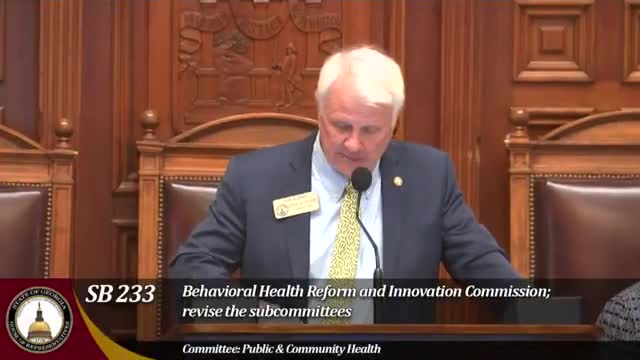Georgia House passes Senate Bill 9 to regulate AI-generated election misinformation
March 27, 2025 | HOUSE OF REPRESENTATIVES, Committees, Legislative, Georgia
Thanks to Scribe from Workplace AI , all articles about Georgia are free for you to enjoy throughout 2025!

This article was created by AI using a video recording of the meeting. It summarizes the key points discussed, but for full details and context, please refer to the video of the full meeting. Link to Full Meeting
Following this, the focus shifted to Senate Bill 9, presented by Representative Brad Thomas. This bill seeks to amend existing laws regarding obscenity and related offenses, specifically targeting the use of AI-generated media in political campaigns. Thomas emphasized that the bill aims to combat fraudulent election interference by establishing clear criteria for what constitutes deceptive media. Under the proposed legislation, the first offense would be classified as a misdemeanor, while subsequent offenses could escalate to felony charges.
Key provisions of Senate Bill 9 include a stipulation that any AI-generated content must be labeled as such, particularly if it is disseminated within 90 days of an election. This timeframe is intended to ensure that voters are not misled by manipulated media during critical periods leading up to elections. Thomas clarified that the bill does not criminalize First Amendment-protected speech, such as satire or parody, as long as proper disclosures are made.
The discussion included a series of questions from fellow representatives, highlighting concerns about the implications of the 90-day rule and the potential for misuse of the legislation. Some members expressed worries that the bill could infringe on free speech rights, while others argued it is necessary to maintain the integrity of elections in the face of rapidly advancing technology.
Supporters of the bill, including Representatives Tran and Sanchez, underscored the importance of protecting voters from misinformation and ensuring that AI does not undermine the democratic process. They argued that the bill is a proactive measure to address the challenges posed by AI in political advertising.
Conversely, opponents, including Representative Charlice Byrd, vehemently criticized the bill, labeling it as an infringement on free speech and a step towards censorship. Byrd argued that the legislation could lead to the criminalization of dissent and warned against adopting policies reminiscent of those in more liberal states like California.
As the meeting progressed, the debate highlighted the tension between safeguarding electoral integrity and preserving First Amendment rights. The session concluded with a call for members to consider the implications of the bill carefully, as it moves forward in the legislative process. The outcome of Senate Bill 9 remains pivotal in shaping the future of political campaigning in Georgia, particularly in an era increasingly influenced by AI technology.
Converted from Session Day 36 03.27.25 meeting on March 27, 2025
Link to Full Meeting
Comments
View full meeting
This article is based on a recent meeting—watch the full video and explore the complete transcript for deeper insights into the discussion.
View full meeting
